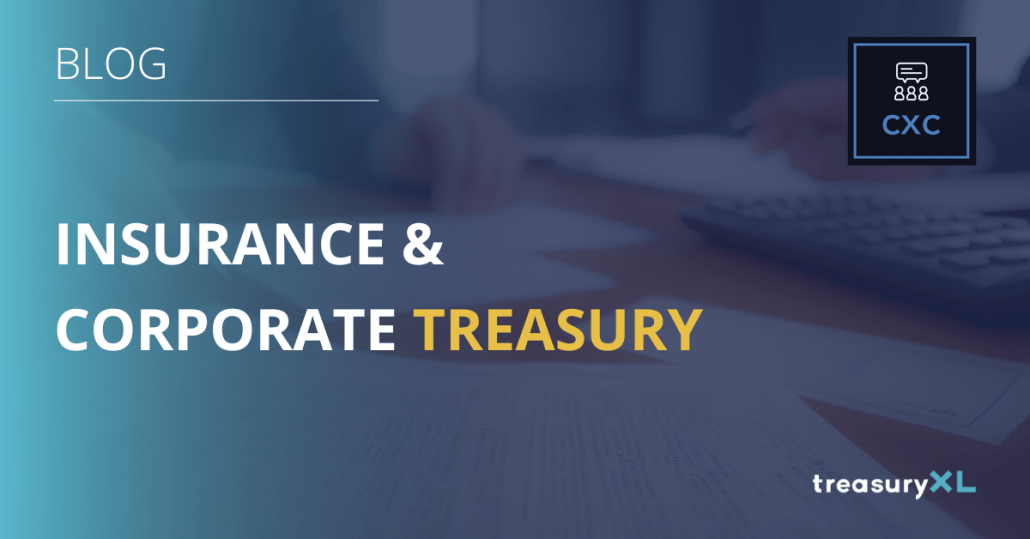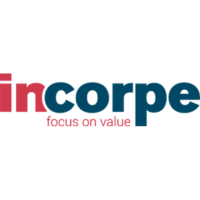Insurance & Corporate Treasury
By ComplexCountries
01/02/2024
We first held a session on insurance eighteen months ago. Like that one, this was a very lively discussion, with a lot of experience sharing and common issues.

Can’t get enough? Check out these latest items
 https://treasuryxl.com/wp-content/uploads/2024/01/Template_VACANCY-featured.png
200
200
treasuryXL
https://treasuryxl.com/wp-content/uploads/2018/07/treasuryXL-logo-300x56.png
treasuryXL2025-07-18 07:00:522025-07-15 12:00:53Vacature Senior Financial Risk Manager – Utrecht
https://treasuryxl.com/wp-content/uploads/2024/01/Template_VACANCY-featured.png
200
200
treasuryXL
https://treasuryxl.com/wp-content/uploads/2018/07/treasuryXL-logo-300x56.png
treasuryXL2025-07-18 07:00:522025-07-15 12:00:53Vacature Senior Financial Risk Manager – Utrecht https://treasuryxl.com/wp-content/uploads/2022/09/ACT-commodities.png
200
200
treasuryXL
https://treasuryxl.com/wp-content/uploads/2018/07/treasuryXL-logo-300x56.png
treasuryXL2025-07-17 14:51:592025-07-17 14:51:59Tax and Treasury Intern @ ACT
https://treasuryxl.com/wp-content/uploads/2022/09/ACT-commodities.png
200
200
treasuryXL
https://treasuryxl.com/wp-content/uploads/2018/07/treasuryXL-logo-300x56.png
treasuryXL2025-07-17 14:51:592025-07-17 14:51:59Tax and Treasury Intern @ ACT https://treasuryxl.com/wp-content/uploads/2025/07/InCorpe.png
200
200
treasuryXL
https://treasuryxl.com/wp-content/uploads/2018/07/treasuryXL-logo-300x56.png
treasuryXL2025-07-17 10:24:302025-07-17 10:24:30Senior Analist Corporate Finance @ InCorpe
https://treasuryxl.com/wp-content/uploads/2025/07/InCorpe.png
200
200
treasuryXL
https://treasuryxl.com/wp-content/uploads/2018/07/treasuryXL-logo-300x56.png
treasuryXL2025-07-17 10:24:302025-07-17 10:24:30Senior Analist Corporate Finance @ InCorpe https://treasuryxl.com/wp-content/uploads/2025/04/Treasury-Spring-van-Template-2.png
200
200
treasuryXL
https://treasuryxl.com/wp-content/uploads/2018/07/treasuryXL-logo-300x56.png
treasuryXL2025-07-17 07:00:002025-07-14 13:56:49From Game Boys to AI: How technology is transforming treasury
https://treasuryxl.com/wp-content/uploads/2025/04/Treasury-Spring-van-Template-2.png
200
200
treasuryXL
https://treasuryxl.com/wp-content/uploads/2018/07/treasuryXL-logo-300x56.png
treasuryXL2025-07-17 07:00:002025-07-14 13:56:49From Game Boys to AI: How technology is transforming treasury https://treasuryxl.com/wp-content/uploads/2024/08/Surecomp-BLOGS-featured-3.png
200
200
treasuryXL
https://treasuryxl.com/wp-content/uploads/2018/07/treasuryXL-logo-300x56.png
treasuryXL2025-07-16 07:00:022025-07-14 10:12:47AI in Trade Finance: From Automation to Transformation
https://treasuryxl.com/wp-content/uploads/2024/08/Surecomp-BLOGS-featured-3.png
200
200
treasuryXL
https://treasuryxl.com/wp-content/uploads/2018/07/treasuryXL-logo-300x56.png
treasuryXL2025-07-16 07:00:022025-07-14 10:12:47AI in Trade Finance: From Automation to Transformation https://treasuryxl.com/wp-content/uploads/2023/03/Treasurer-Search-Logo.png
200
200
treasuryXL
https://treasuryxl.com/wp-content/uploads/2018/07/treasuryXL-logo-300x56.png
treasuryXL2025-07-15 13:20:492025-07-17 10:27:10Senior Financial Risk Manager – Utrecht @ Treasurer Search
https://treasuryxl.com/wp-content/uploads/2023/03/Treasurer-Search-Logo.png
200
200
treasuryXL
https://treasuryxl.com/wp-content/uploads/2018/07/treasuryXL-logo-300x56.png
treasuryXL2025-07-15 13:20:492025-07-17 10:27:10Senior Financial Risk Manager – Utrecht @ Treasurer Search https://treasuryxl.com/wp-content/uploads/2024/10/Embat-BLOGS-featured-2.png
200
200
treasuryXL
https://treasuryxl.com/wp-content/uploads/2018/07/treasuryXL-logo-300x56.png
treasuryXL2025-07-15 07:00:292025-07-14 09:39:46The art and science of building a financial team
https://treasuryxl.com/wp-content/uploads/2024/10/Embat-BLOGS-featured-2.png
200
200
treasuryXL
https://treasuryxl.com/wp-content/uploads/2018/07/treasuryXL-logo-300x56.png
treasuryXL2025-07-15 07:00:292025-07-14 09:39:46The art and science of building a financial team https://treasuryxl.com/wp-content/uploads/2024/10/Carlo-_BLOGS-Expert-featured-2.png
200
200
treasuryXL
https://treasuryxl.com/wp-content/uploads/2018/07/treasuryXL-logo-300x56.png
treasuryXL2025-07-14 08:34:312025-07-14 08:34:31Banks and Stablecoins: a first step towards bridging traditional finance and the crypto world
https://treasuryxl.com/wp-content/uploads/2024/10/Carlo-_BLOGS-Expert-featured-2.png
200
200
treasuryXL
https://treasuryxl.com/wp-content/uploads/2018/07/treasuryXL-logo-300x56.png
treasuryXL2025-07-14 08:34:312025-07-14 08:34:31Banks and Stablecoins: a first step towards bridging traditional finance and the crypto world https://treasuryxl.com/wp-content/uploads/2024/01/Template_VACANCY-featured.png
200
200
treasuryXL
https://treasuryxl.com/wp-content/uploads/2018/07/treasuryXL-logo-300x56.png
treasuryXL2025-07-11 07:00:512025-07-11 08:42:17Vacancy Treasury Operations Analyst – South Holland
https://treasuryxl.com/wp-content/uploads/2024/01/Template_VACANCY-featured.png
200
200
treasuryXL
https://treasuryxl.com/wp-content/uploads/2018/07/treasuryXL-logo-300x56.png
treasuryXL2025-07-11 07:00:512025-07-11 08:42:17Vacancy Treasury Operations Analyst – South Holland



The main topical insight was that, compared to the past three years or so, the market has ceased hardening, or is doing so more slowly. Experiences were mixed, but, even if premiums are still increasing, the rate of increase has slowed down. Pressure was significantly lower in the US property market, due to a less severe hurricane season, and D&O. Several participants also reported that the cyber market seems to be maturing. Even so, the environment remains challenging, with a net increase in premiums often happening, if only due to the rise in the value of the assets being insured. Real estate valuations are rising, while inflation and changes in supply chain structures are causing inventory values to rise.
A lot of the call was spent discussing structural and strategic questions. I strongly encourage people to read the detailed report, but the main items were:
Bottom line: insurance can often be something of an orphan child, as it does not incontrovertibly belong in any single function, and there is a constant struggle with budget pressures. However, it is clearly a key part of risk management, and the decisions taken have a significant impact on any company’s financial performance. Premiums have been increasing over the past few years, but pressure seems to be easing.
As was clear from this call, participants who get involved in the area quickly become passionate about it.
The brokers cited in the discussion were Marsh McLennan and Aon. The insurance company which was named most was FM Global..
This report was produced by Monie Lindsey based on a Treasury Peer Call chaired by Damian Glendinning.
To access this report
Access to the full report is available to Premium Subscribers of ComplexCountries. Please log in on the website of ComplexCountries to access the download.
Please contact ComplexCountries to find out about their subscription packages.